GAATW Statement for the Conference of Parties of the UNFCCC (COP 30) on 10-21 November 2025

COP 30 comes at a time of increasing global injustices. Genocide, escalating and unmet humanitarian needs from conflict and climate change, and persistent economic inequality are among them. We also face serious challenges to multilateralism, and the willingness of Global North countries to take their fair share of climate responsibility. However, COP being held in Brazil this year creates a sense of hope that backsliding on climate ambition can be stopped and reversed. Turning words into action for migrants and displaced people affected by climate change is a critical component of achieving a meaningful outcome in Belém.
Response to call for input for the report on “Human Rights of Migrants” by the Secretary-General of the UN High Commissioner for Human Rights (OHCHR)
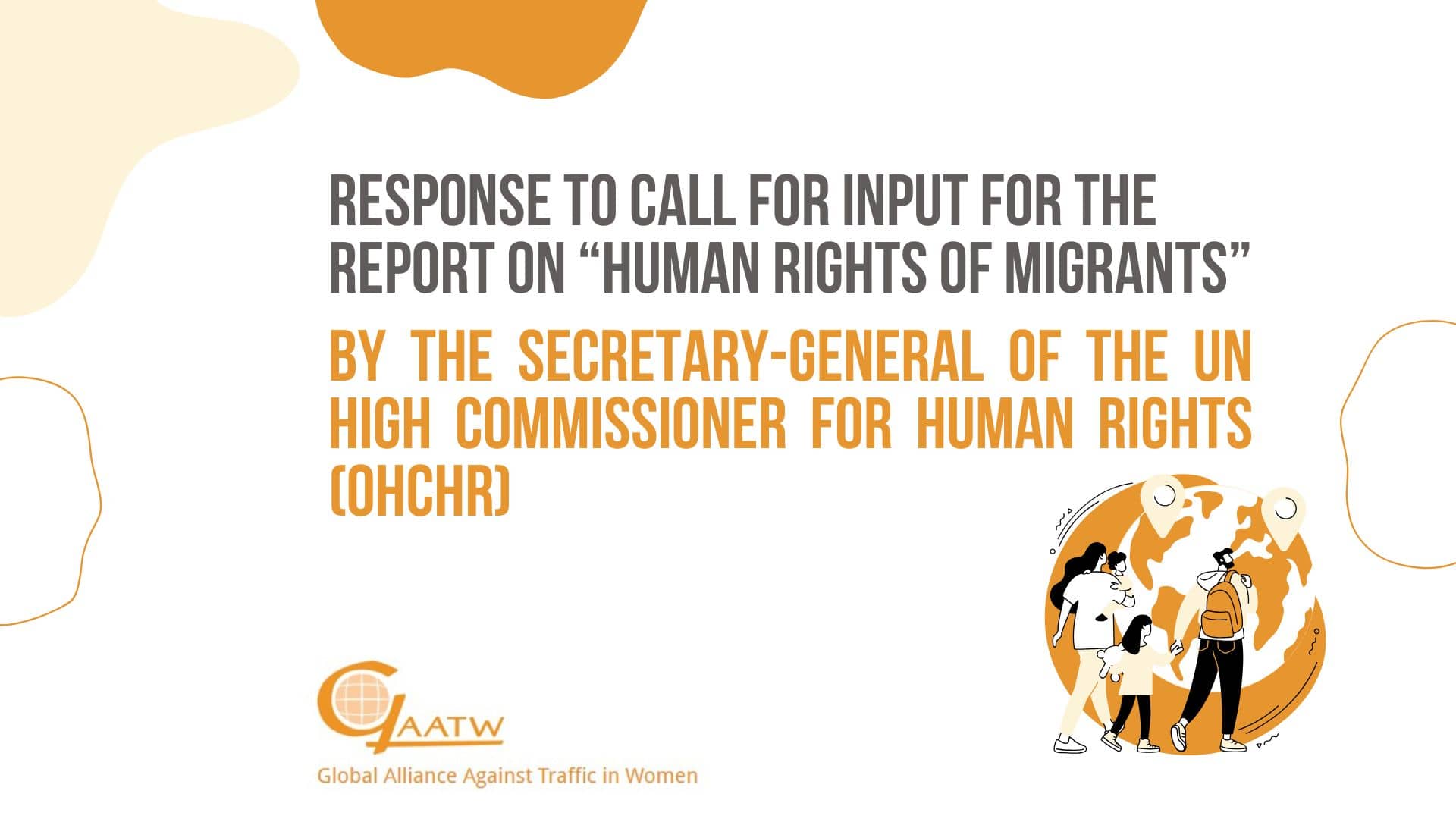
The Global Alliance Against Traffic in Women (GAATW) is an international network of over 100 NGOs in all regions of the world, which advocates for the rights of migrants and trafficked persons. Member organisations provide direct assistance to trafficked persons, migrants, sex workers, and other people in need of support; carry out awareness campaigns; conduct trainings; and engage in policy advocacy at the national and regional levels. The International Secretariat of GAATW is based in Bangkok, Thailand, and supports its members through research, international advocacy, capacity building, and information and knowledge exchange.
A Message of Solidarity for our Friends in Nepal
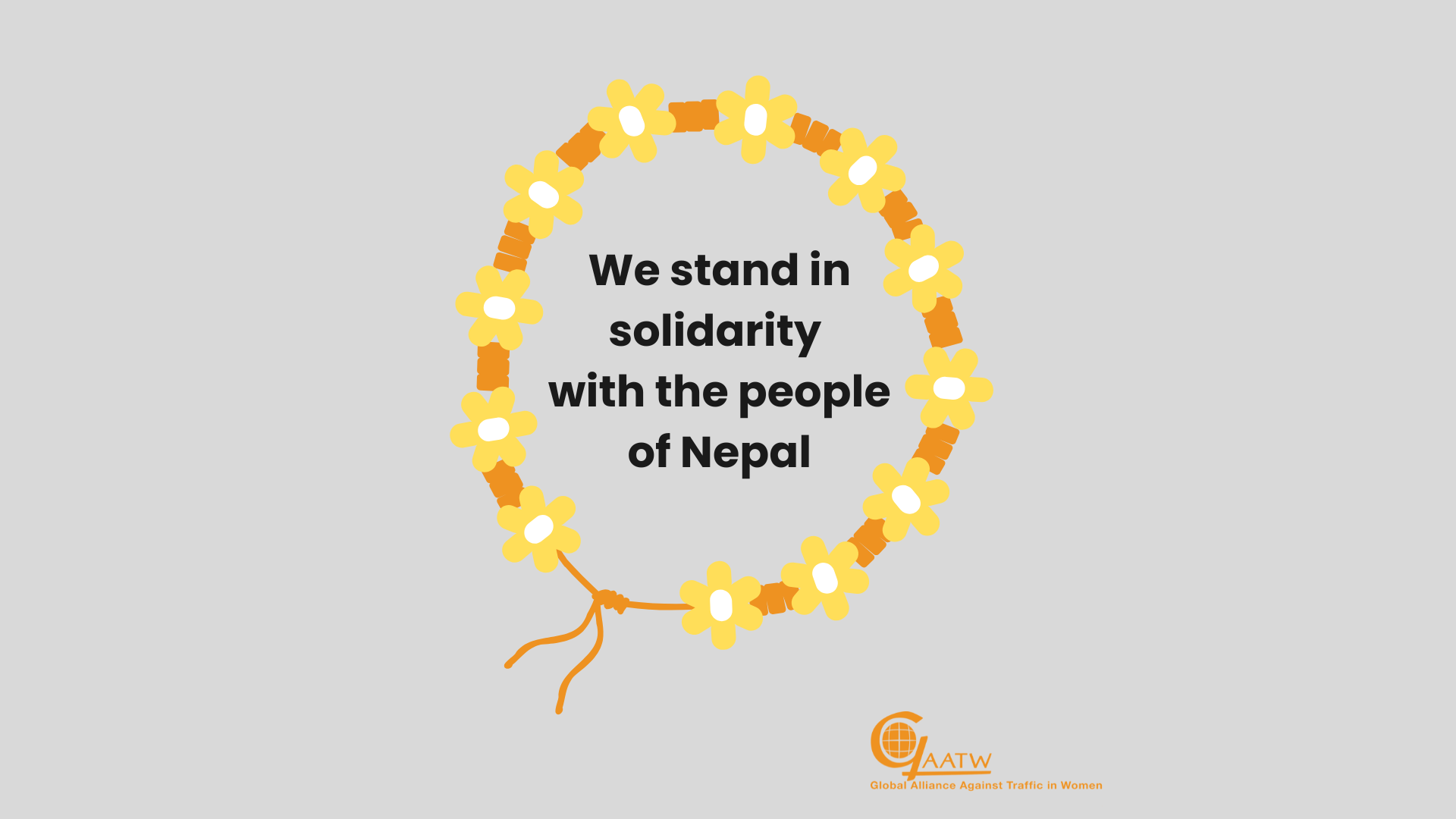
Given the recent events happening in the city of Kathmandu, Nepal, GAATW Secretariat sends a message of Solidarity for our Friends
More than 200 Organisations: Inhumane Deportation Rules Should be Rejected
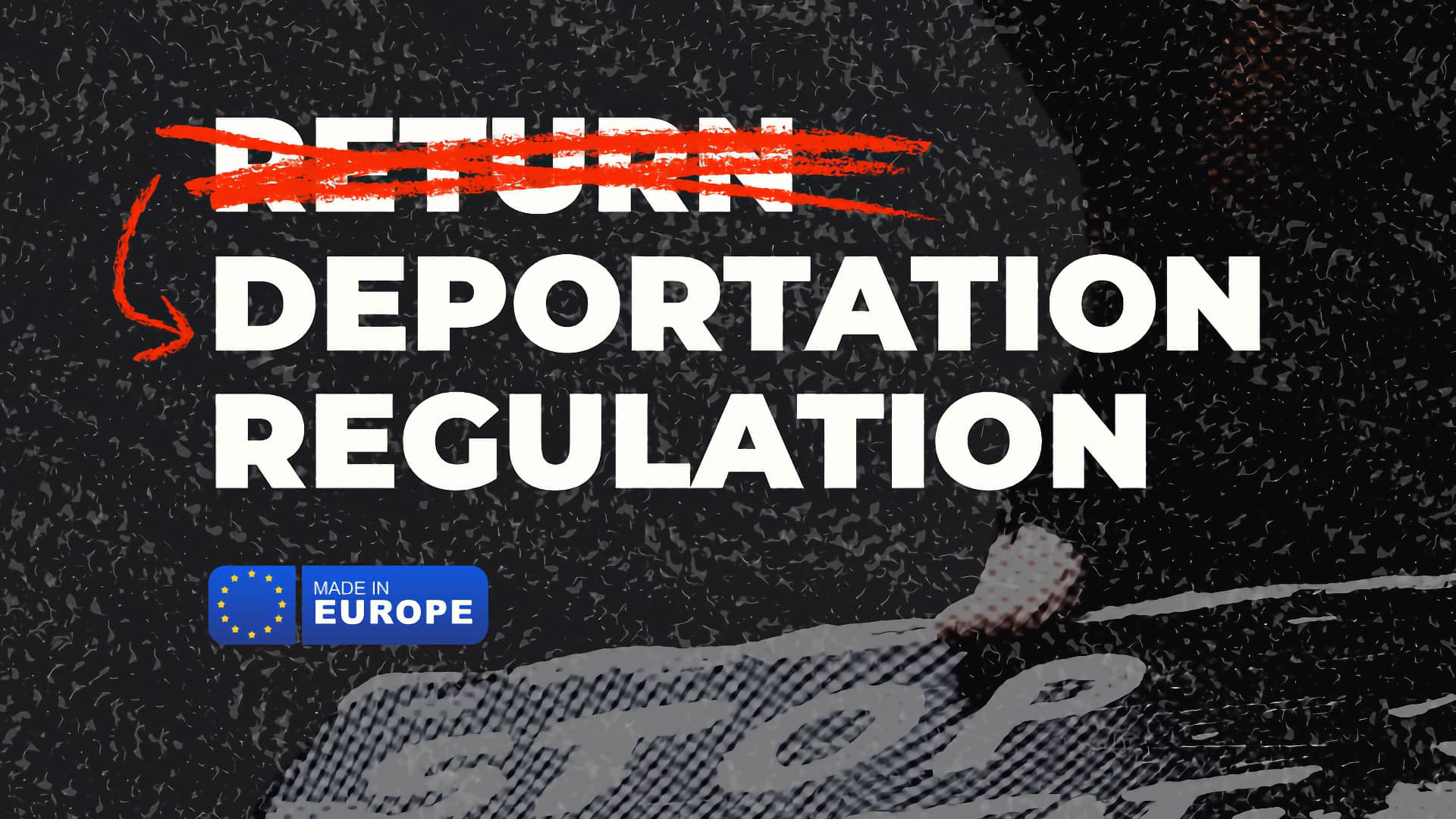
On 11 March 2025, the European Commission presented a new proposal for a Return Regulation to replace the current Return Directive. Behind the euphemistic name, the proposal outlines coercive, traumatising, and rights-violating measures premised on an imperative of increasing deportation rates. Instead of focusing on protection, housing, healthcare and education, the Regulation is premised on punitive policies, detention centres, deportation and enforcement.
Uphold Human Security And Human Rights, End Mass Deportations And State Repression
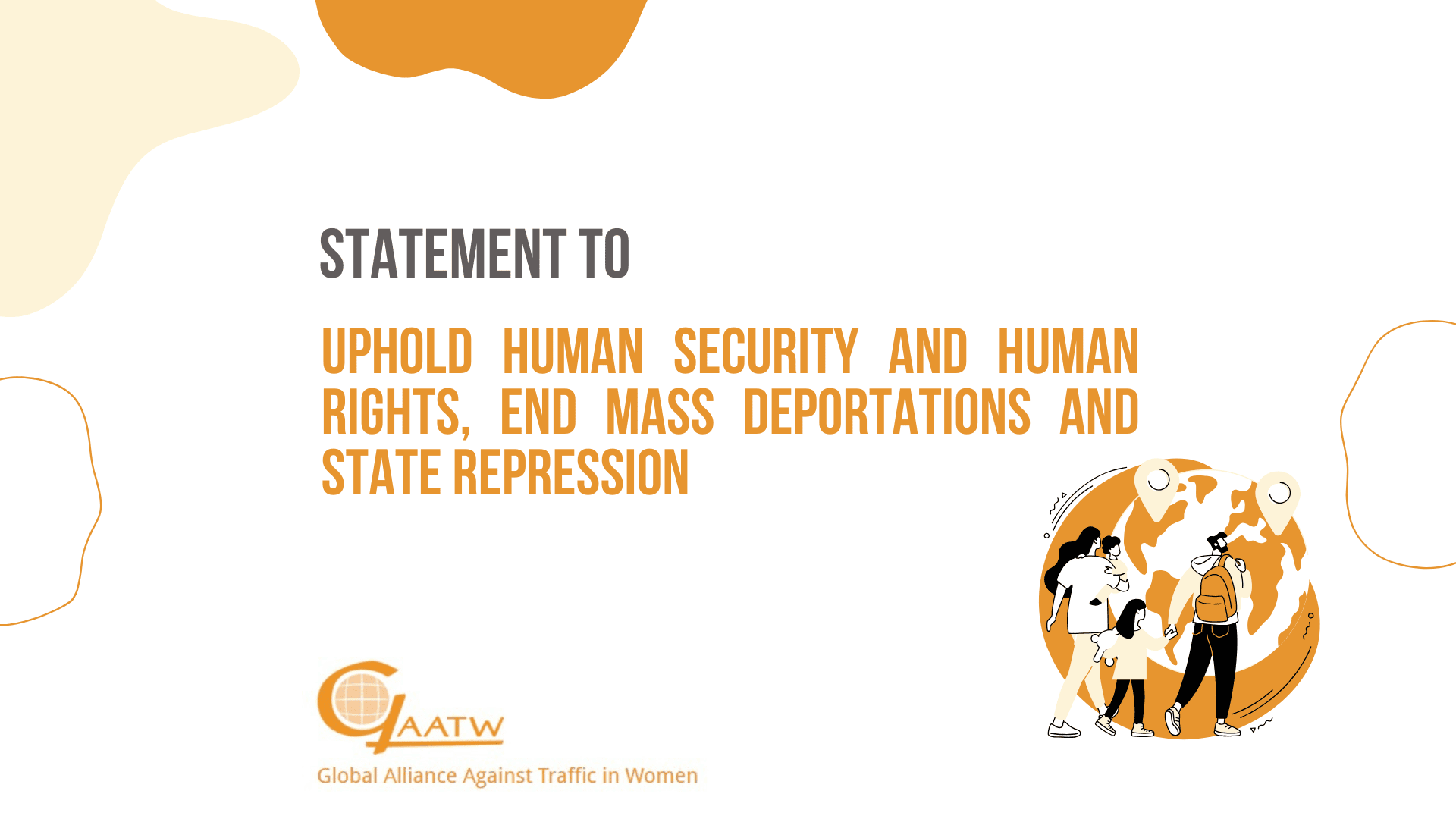
Please click here for the PDF version. Para leer la versión en español, dé click aquí.
GAATW stands in full solidarity with human rights advocates and organisations in the urgent call to stop the systems of securitisation, surveillance, and state-led repression that are being used across the US and beyond to criminalise migrants, immigrants and refugees, including trafficked persons.
Under the guise of national security, states are justifying mass deportations, detention and racial profiling, acts that violate fundamental rights and human dignity. In the past months, we have witnessed reports of migrants from working-class groups in the US being forcibly removed from homes, school premises and workplaces by authorities WITHOUT any due process. Many have taken the matter to social media to alert people and disseminate information about raids, checkpoints and patrols in targeted areas.[1]
No More Delays, Free Mary Jane Now!
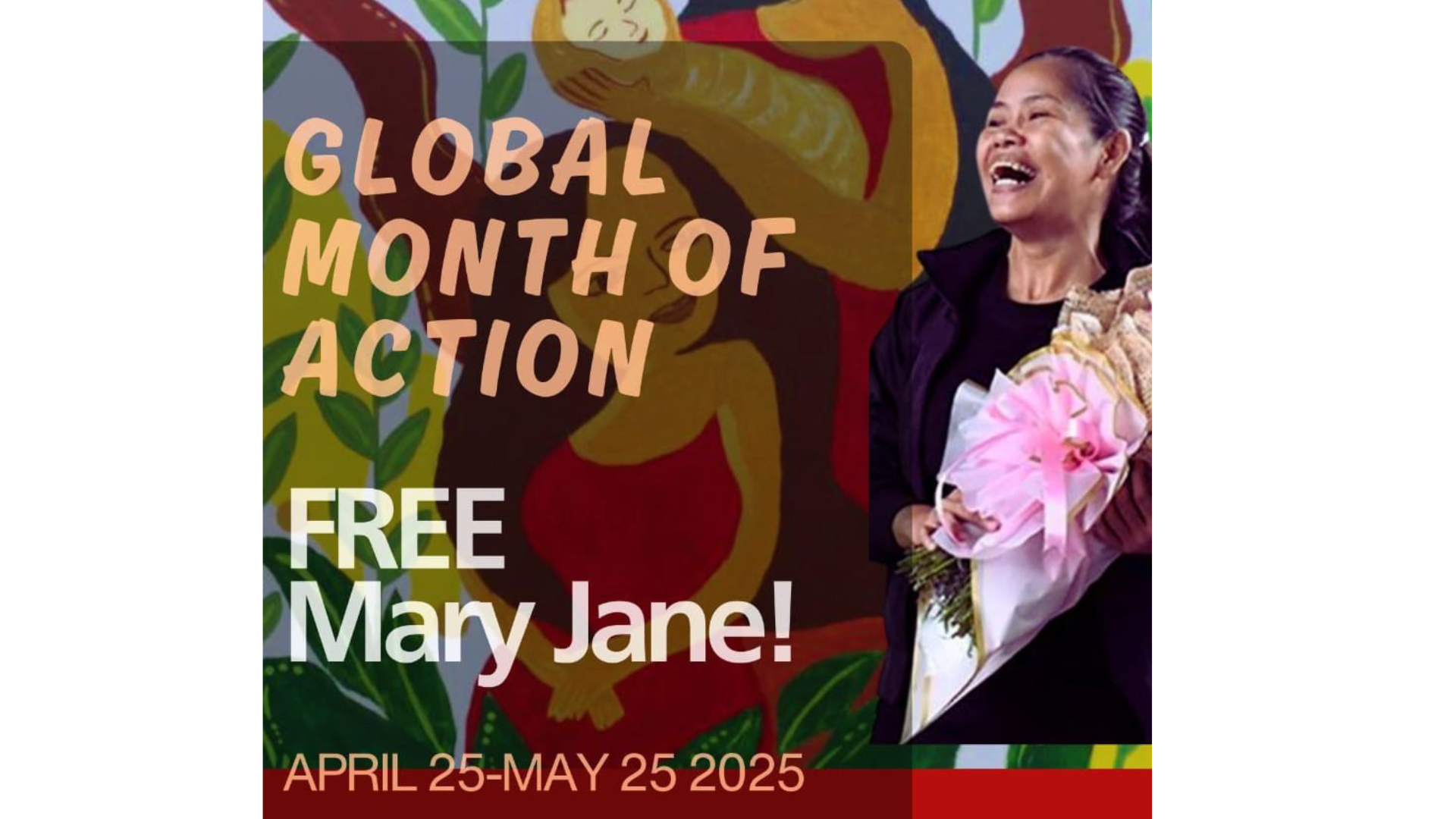
The Network for the Protection of Women Migrant Rights (NPWMR) - in which GAATW is a part of - released a statement calling on all women migrant leaders, women’s rights leaders, and human rights defenders to join us in solidarity in the struggle for Mary Jane Veloso’s freedom and ensure that truth and justice prevail.
April 25th 2025 marks 15 years since Mary Jane Veloso’s arrest in Yogyakarta, Indonesia where she was sentenced to death for unwittingly smuggling drugs to Indonesia. Last December 2024, she was transferred back to the Philippines after a practical agreement signed between the Indonesian and the Philippine governments for a transfer of prisoners based on diplomacy, international cooperation and legal sovereignty. Upon transfer to the Philippines, according to the Agreement, she will continue serving her sentence in alignment with Philippine law and procedures. However, Indonesia would respect any decision made by the Philippines after Veloso returned to her country, including the possibility of clemency. Now, four months have passed since her repatriation and Mary Jane still continues to serve in the Philippines' prison without any certainty if she will ever receive any justice.
Statement by Global Alliance Against Traffic in Women to commemorate the 16 days of Activism against Gender-Based Violence
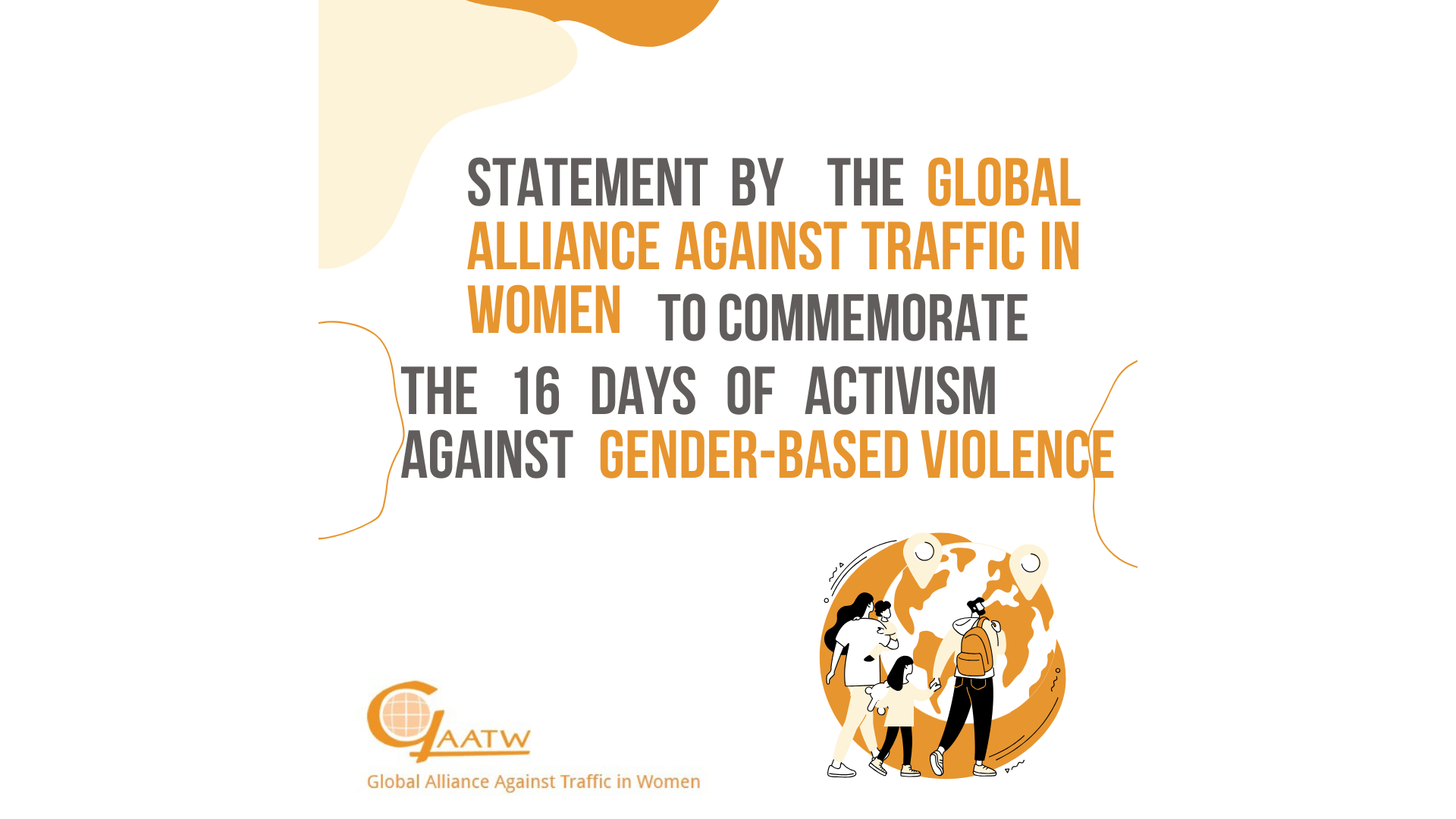
Para leer la versión en español, ir más abajo.
We at the International Secretariat of Global Alliance Against Traffic in Women (GAATW) join our members, partners, and friends around the world to commemorate the 16 Days of Activism Against Gender-Based Violence (GBV). We are inspired by the resilience and dedication of our colleagues who do not give up despite the old and new challenges.
This year's theme, “Towards Beijing +30: UNiTE to End Violence Against Women and Girls,” highlights the progress made in challenging the norms, policies, and systems that sustain inequality and harm. It also serves as a sobering reminder that we have a long way to go. There are still many policies and practices that jeopardise the progress that was made after long years of struggle and new challenges are coming up daily.
Joint Submission Report to CEDAW: The Human Rights Situation of Migrant Domestic Workers in Saudi Arabia
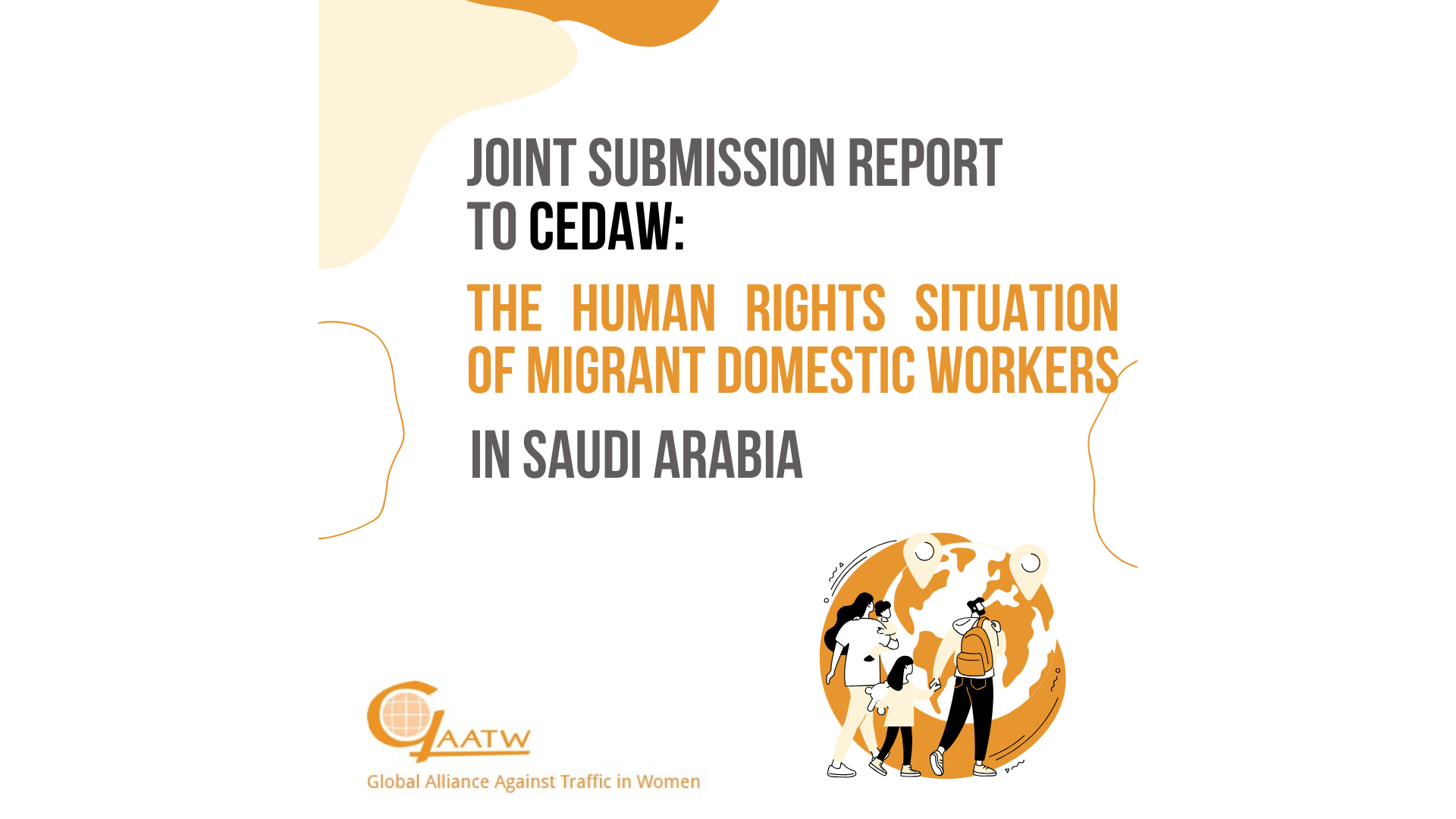
This report presents two joint submissions prepared for the Committee on the Elimination of Discrimination against Women (CEDAW), highlighting the human rights challenges faced by migrant domestic workers in Saudi Arabia.
Part 1 is a joint submission by the Global Alliance Against Traffic in Women (GAATW) and our member Sema Nami. This section addresses the discrimination and challenges migrant workers face under the kafala system, the exclusion of domestic workers from recent labour reforms, and the introduction of a new domestic worker law. It offers recommendations to end nationality-based discrimination, abolish restrictive exit permit laws, and provide interpreters and legal aid, among others.
